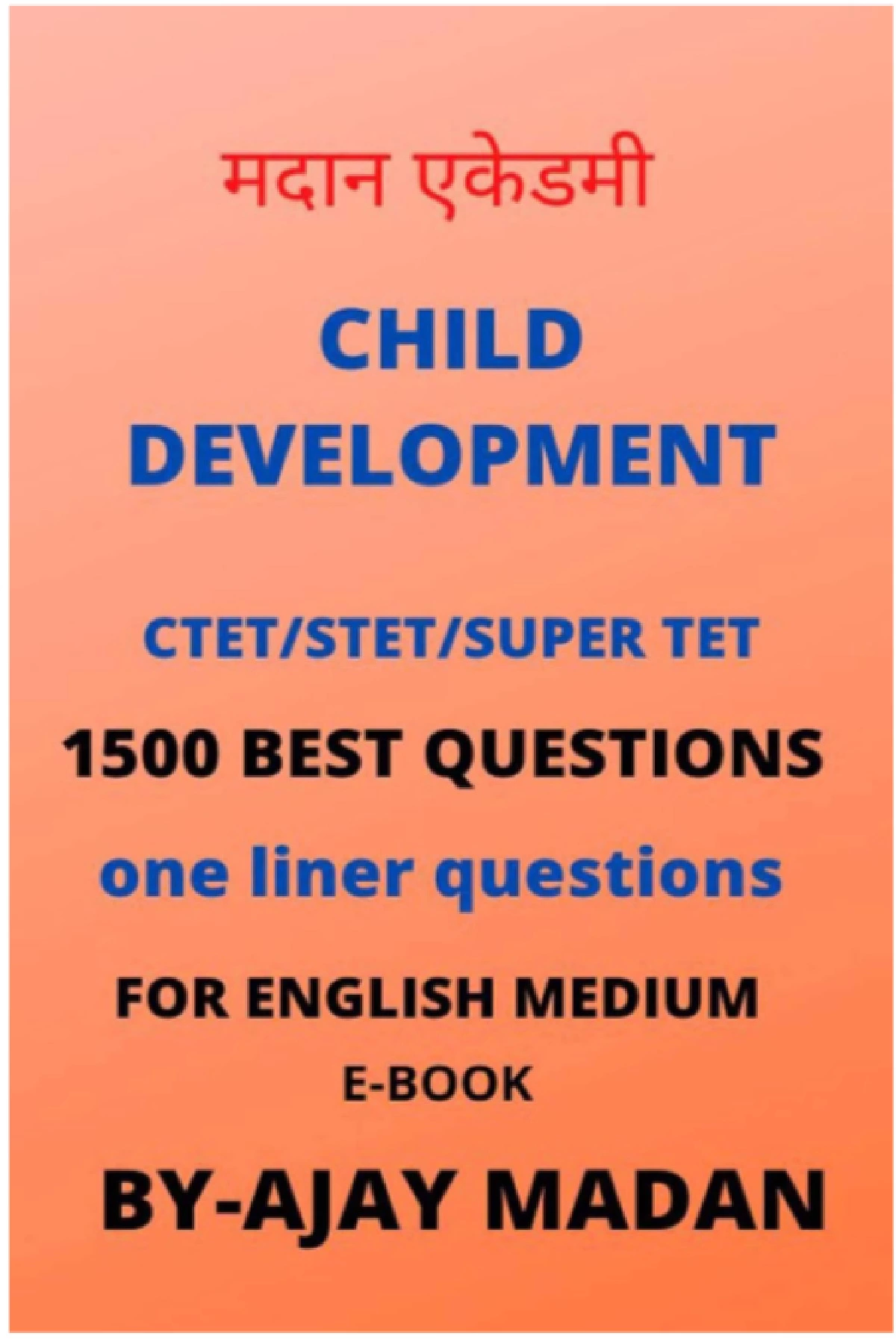
Child Development and Pedagogy Book
Child Development and Pedagogy is a comprehensive guide to understanding the physical, cognitive, emotional, and social development of children from infancy through adolescence. It explores the theories, principles, and practices that underpin effective teaching and learning processes tailored to children’s developmental stages.
Child Development and Pedagogy Book – Topics
- Theories of Child Development:
- Piaget’s Cognitive Development Theory: Explores how children construct a mental model of the world.
- Vygotsky’s Sociocultural Theory: Emphasizes the influence of social interactions and culture on cognitive development.
- Erikson’s Psychosocial Development Theory: Focuses on the social and emotional development across eight stages of life.
- Behaviorist Theories: Skinner and Watson’s perspectives on how environmental stimuli shape behavior through reinforcement and punishment.
- Stages of Development:
- Infancy (0-2 years): Sensory experiences, motor skills, and attachment.
- Early Childhood (2-6 years): Language development, early literacy, and social play.
- Middle Childhood (6-12 years): Logical thinking, academic skills, peer relationships.
- Adolescence (12-18 years): Identity formation, abstract thinking, and independence.
- Physical Development:
- Motor Skills: Gross and fine motor development milestones.
- Health and Nutrition: The impact of diet, exercise, and sleep on physical growth.
- Cognitive Development:
- Information Processing: How children perceive, think, and understand the world.
- Language Acquisition: Stages and theories of how children learn language.
- Memory and Problem-Solving Skills: Development of cognitive strategies.
- Social and Emotional Development:
- Attachment and Bonding: The importance of secure attachments in early years.
- Emotional Regulation: How children learn to manage and express emotions.
- Socialization: The role of family, peers, and media in social development.
- Educational Implications:
- Developmentally Appropriate Practices: Tailoring instruction to meet developmental needs.
- Classroom Management: Strategies for fostering a positive learning environment.
- Inclusive Education: Addressing diverse learning needs and promoting equity.
- Assessment and Evaluation:
- Formative and Summative Assessments: Methods to evaluate children’s progress.
- Standardized Testing: Benefits and limitations.
- Observational Techniques: Using observations to inform teaching practices.
- Pedagogical Approaches:
- Constructivist Approaches: Emphasizing hands-on learning and discovery.
- Behavioral Approaches: Using reinforcement to shape behavior.
- Humanistic Approaches: Fostering self-actualization and personal growth.